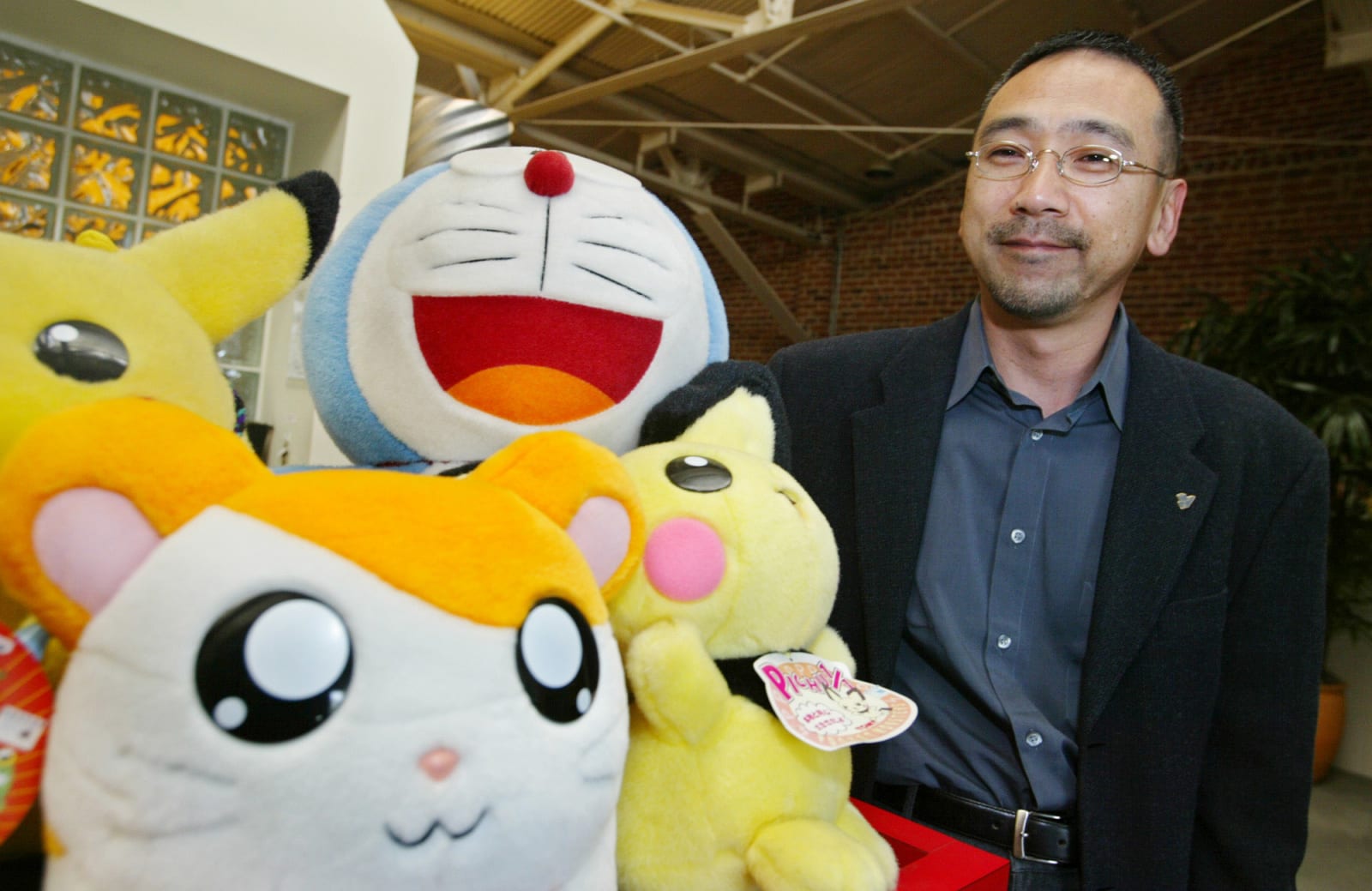Posts Tagged: Japan
Japan will try to beam solar power from space by 2025
Japan and JAXA, the country’s space administration, have spent decades trying to make it possible to beam solar energy from space. In 2015, the nation made a breakthrough when JAXA scientists successfully beamed 1.8 kilowatts of power, enough energy to power an electric kettle, more than 50 meters to a wireless receiver. Now, Japan is poised to bring the technology one step closer to reality.
Nikkei reports a Japanese public-private partnership will attempt to beam solar energy from space as early as 2025. The project, led by Naoki Shinohara, a Kyoto University professor who has been working on space-based solar energy since 2009, will attempt to deploy a series of small satellites in orbit. Those will then try to beam the solar energy the arrays collect to ground-based receiving stations hundreds of miles away.
Using orbital solar panels and microwaves to send energy to Earth was first proposed in 1968. Since then, a few countries, including China and the US, have spent time and money pursuing the idea. The technology is appealing because orbital solar arrays represent a potentially unlimited renewable energy supply. In space, solar panels can collect energy no matter the time of day, and by using microwaves to beam the power they produce, clouds aren’t a concern either. However, even if Japan successfully deploys a set of orbital solar arrays, the tech would still be closer to science fiction than fact. That’s because producing an array that can generate 1 gigawatt of power – or about the output of one nuclear reactor – would cost about $ 7 billion with currently available technologies.
This article originally appeared on Engadget at https://www.engadget.com/japan-will-try-to-beam-solar-power-from-space-by-2025-214338244.html?src=rss
Engadget is a web magazine with obsessive daily coverage of everything new in gadgets and consumer electronics
Japan joins US-led effort to restrict China’s access to chipmaking equipment
Japan is officially moving forward with restrictions aimed at limiting China’s access to advanced chipmaking machinery. As CNN reports, the country announced Friday it would tighten export controls on 23 types of semiconductor manufacturing equipment. Once the new rules take effect in July, companies like Nikon and Tokyo Electron will need to obtain approval from Japan’s trade ministry if they want to sell their tools in some 160 territories across the world. A Japanese government spokesperson told CNN the restrictions aren’t designed to target a specific nation. However, Japan’s east asian rival is among the nations on the restricted list.
“We will fulfill our responsibilities in the international community as a technology-owning country and contribute to maintaining international peace and security,” Yasutoshi Nishimura, Japan’s minister of economy, trade and industry, told reporters.
The restrictions follow the US and Netherlands enacting similar export controls. At the start of the year, the three countries reportedly reached an agreement to limit China’s access to western-made lithography machines. In March, the Netherlands made good on the deal, announcing it would restrict overseas sales of semiconductor technology in the interest of its national security. Those restrictions will affect ASML. As of last year, the Dutch firm was the only company in the world producing the extreme ultraviolet lithography (EUV) machines chipmakers need to make the 5nm and 3nm semiconductors that power the latest phones and computers.
China has homegrown firms capable of making up some of the shortfall the country’s tech industry will experience from the lack of access to western-made lithography equipment. However, it may take some time before those companies match the capacity of their American, Japanese and European rivals. According to research from Reuters, Shanghai Micro Electronics Equipment (SMEE), China’s only producer of lithography equipment, makes machines capable of printing 90nm node semiconductors. More promising is the work of SMIC, the country’s leading semiconductor manufacturer. Last summer, it began volume production of 14nm chips and began making 7nm chips without access to foreign-made equipment.
This article originally appeared on Engadget at https://www.engadget.com/japan-joins-us-led-effort-to-restrict-chinas-access-to-chipmaking-equipment-214602553.html?src=rss
Engadget is a web magazine with obsessive daily coverage of everything new in gadgets and consumer electronics
Google workers in Japan have joined a labor union in response to planned layoffs
Dozens of Google Japan employees have organized under the Tokyo Managers’ Union. It’s the first labor union at Google Japan, according to Meiji University Assistant Professor Ken Yamazaki, who also posted a copy of the group’s statements from a press conference. Apparently, the employees chose to organize out of fear that they could be abruptly laid off, especially since some of them are in Japan on work visas.
Their concerns stemmed from the tech giant’s announcement back in January that it’s cutting 12,000 jobs — that’s six percent of the company’s overall workforce — around the world. They said their counterparts in the US were terminated with just an email sent in the middle of the night, and that the Japanese office’s employees were left anxiously awaiting for the ax to fall over the past few weeks. The workers said they joined a labor union in response to that announcement and to news about the fate of the company’s employees in other countries.
For a dismissal to be legal in Japan, a company has to prove that it has reasonable grounds to terminate an employee. However, some companies terminate employees without good reason by claiming to have problems with the worker. The group is hoping that joining a union would protect them from sudden termination. In the US, one of the divisions most affected by the job cuts was the company’s Area 120 in-house incubator, which works on experimental apps and products. The division used to develop 20 projects simultaneously, but that’s now down to three after most people in the team lost their jobs.
When Google announced it was going to let 12,000 workers go, Chief Executive Sundar Pichai said he was “deeply sorry” and that he takes “full responsibility for the decisions that led [the company] here.” He admitted that the tech giant went on a hiring spree over the last few years, but that Google “hired for a different economic reality than the one we face today.” According to the company’s latest earnings report, its revenue for the fourth quarter of 2022 grew one percent from the year before, but its quarterly net income was down 34 percent year-over-year.
This article originally appeared on Engadget at https://www.engadget.com/google-workers-in-japan-joined-labor-union-064417794.html?src=rss
Engadget is a web magazine with obsessive daily coverage of everything new in gadgets and consumer electronics
US, Netherlands and Japan reportedly agree to limit China’s access to chipmaking equipment
The Biden administration has reportedly reached an agreement with the Netherlands and Japan to restrict China’s access to advanced chipmaking machinery. According to Bloomberg, officials from the two countries agreed on Friday to adopt some of the same export controls the US has used over the last year to prevent companies like NVIDIA from selling their latest technologies in China. The agreement would reportedly see export controls imposed on companies that produce lithography systems, including ASML and Nikon.
Bloomberg reports the US, Netherlands and Japan don’t plan to announce the agreement publicly. Moreover, implementation could take “months” while the countries work to hammer out the legal details. “Talks are ongoing, for a long time already, but we don’t communicate about this. And if something would come out of this, it is questionable if this will be made very visible,” said Dutch Prime Minister Mark Rutte on Friday, responding to a question about the negotiations.
According to Bloomberg, the agreement will cover “at least” some of ASML’s immersion lithography machines. As of last year, ASML was the only company in the world producing the extreme ultraviolet lithography (EUV) machines chipmakers need to make the 5nm and 3nm semiconductors that power the latest smartphones and computers. Cutting off China from ASML’s products is an effort by the Biden administration to freeze the country’s domestic chip industry. Last summer, Chinese state media reported that SMIC, China’s leading semiconductor manufacturer, had begun volume production of 14nm chips and had successfully started making 7nm silicon without access to foreign chip-making equipment. China has said SMIC is working on making 5nm semiconductors, but it’s unclear how the company will do that without access to EUV machines.
A studio of ‘Witcher 3’ developers are making an online action game set in feudal Japan
A group of former CD Projekt Red developers is working on a new online action that will take players to feudal Japan. This week, Dark Passenger co-founders Jakub Ben and Marcin Michalski announced the formation of their studio and put out a call for talent in a series of tweets spotted by PC Gamer. Ben and Michalski were part of the art team that worked on The Witcher 3 and later went on to do contract work on Cyberpunk 2077.
Dark Passenger’s first game doesn’t have a name yet, but the studio’s website provides some details on the project. Ben and Michalski say they want to create an online multiplayer game with support for both competitive and cooperative play. They describe a title that sounds like it will borrow elements from games like Titanfall and Absolver. “Our locomotion system will allow players to perform incredible [feats] such as running on arrows that were fired by other players, fast climbing on vertical surfaces with the use of shuko claws or using [a] yari spear like a pole to jump over obstacles,” the studio said. “Engaging [in] close-ranged combat will demand as much dexterity as tactics and close cooperation with teammates.”
The news of the founding comes after former CDPR executive Konrad Tomaszkiewicz announced at the start of the year he was creating a studio named Rebel Wolves. He said his team would release its first project, a dark fantasy role-playing game built in Unreal Engine 5, sometime in 2025. After directing the critically acclaimed The Witcher 3 and contributing to Cyberpunk 2077, Tomaszkiewicz left CDPR in May 2021 amid allegations he bullied coworkers. Before his departure, it came out that work on Cyberpunk involved a lengthy and brutal crunch period for many of its developers.
As PC Gamer points out, Dark Passenger’s careers page alludes to some of the criticisms of CDPR. “We create a prejudice-free environment based on tolerance, support and understanding. We treat individual needs as seriously as the group’s expectations,” the page states. “We provide all amenities, private medical care and paid overtime. With an emphasis on work-life balance, we offer flexible working hours and holidays.” As for when you can expect to play the studio’s first game, Dark Passenger has not shared a release date.
Super Nintendo World Japan confirms Donkey Kong expansion for 2024
Nintendo has confirmed that it will expand its Super Nintendo World theme park at Universal Studios Japan with a new Donkey Kong section. The new zone, which is reportedly already under construction, is set to open sometime in 2024 and will expand the park size by 70 percent, Nintendo said.
"The area will feature a roller coaster, interactive experiences and themed merchandise and food," Nintendo wrote in a press release. "Guests will be able to take a walk on the wild side through the lush jungles where Donkey Kong and his friends live."
We posted the news release “SUPER NINTENDO WORLD EXPANSION. WORLD’S FIRST DONKEY KONG THEMED AREA SET TO OPEN IN 2024” https://t.co/adAmko6FfX
— 任天堂株式会社(企業広報・IR) (@NintendoCoLtd) September 28, 2021
Super Nintendo World opened in March of 2021 after a delay due to COVID-19, with mask-wearing, temperature checks and hand sanitizer requirements in place. However, a surge in the pandemic prompted a temporary closure a month later. As it stands now, travel to Japan is banned for tourists and other travelers.
Nintendo plans similar attractions at the Orlando, Hollywood and Singapore Universal Studios parks. Key attractions at the Japan park are the Mario Kart: Kuppa's Challenge rollercoaster and Yoshi Adventure. Guests also get a "Power-up Band" that lets them collect coins and have other interactive experiences.
"I am very happy to be able to make the world of Donkey Kong a reality following the world of Mario," said Nintendo Donkey Kong creator Shigeru Miyamoto. "I am looking forward to creating a thrilling Donkey Kong experience with the amazing team at Universal. It will take some time until it is completed, but it will be a unique area for not only people who are familiar with Donkey Kong games, but for all guests."
Super Nintendo Land will open in Japan on February 4th, 2021
Super Nintendo World, the much anticipated “life-size, living video game” theme park will open on February 4th in Osaka, Universal Studios Japan has announced. The opening date is a welcome surprise, as Universal and Nintendo last said that the park…
Engadget
A sushi restaurant chain in Japan is using AI to evaluate tuna cuts
The highlight of almost any sushi platter is the fatty tuna. Finding that perfect cut of tuna that melts in your mouth is something that fish buyers spend years of their life learning how to do. But now a Japanese advertising agency named Dentsu Inc…
Engadget RSS Feed
Japan will help NASA build a space station near the Moon

Engadget RSS Feed
Google’s Titan Security Bundle is now available in the UK, Canada, Japan, and France
After rolling out in the US almost a year ago, Google’s Titan Security Key Bundle is finally becoming available in other regions. Used for two-factor authentications, the bundle includes both USB and Bluetooth hardware keys built to FIDO security standards. The Titan Security Bundle retails for $ 50 in the US and is now available to […]
Come comment on this article: Google’s Titan Security Bundle is now available in the UK, Canada, Japan, and France
Get new manga when Japan does with Shonen Jump’s subscription service

Engadget RSS Feed
Japan axes its ‘fast’ nuclear reactor prototype
Japan's Monju reactor was supposed to be a more efficient alternative to conventional nuclear power. The "fast," sodium-cooled prototype plant would produce more plutonium than it ate up, making it relatively easy to recycle fuel. However, that's n…
Engadget RSS Feed
Japan is planning to build the world’s fastest supercomputer
It’s already one of the most technologically advanced countries, and now, Japan is looking to cement its position at the forefront of digital innovation. It’s all contingent upon a new supercomputer that aims to be the fastest in the world.
The post Japan is planning to build the world’s fastest supercomputer appeared first on Digital Trends.
McDonald’s Japan captures its first profit in two years thanks to ‘Pokémon Go’
By teaming up with the new hot app Pokémon Go, McDonald’s Japan has managed to secure its first profit in two years, thanks to an increase in sales immediately following the launch of the game in the country.
The post McDonald’s Japan captures its first profit in two years thanks to ‘Pokémon Go’ appeared first on Digital Trends.
False smartphone alert of major quake leaves millions in Japan sweating
Millions of smartphones across Tokyo started beeping in unison on Monday after a quake-alert app warned them that a huge tremor was about to strike. It was, however, sent in error, sparking unnecessary panic among those expecting the worst.
The post False smartphone alert of major quake leaves millions in Japan sweating appeared first on Digital Trends.
With masses of hazardous space junk orbiting Earth, Japan offers a solution
Right now there are countless fragments of space junk orbiting Earth that are big enough to cause serious damage to working satellites or even the ISS. Japan’s space agency is close to testing an innovative solution it hopes can make space safer.
The post With masses of hazardous space junk orbiting Earth, Japan offers a solution appeared first on Digital Trends.
Google and Verizon connecting Japan and Ecuador earthquake victims with loved ones
Google and Verizon have, with a combination of tools and fee waivers, made it easier to contact victims of the Japan and Ecuador earthquakes. They’re also contributing to the relief efforts in both countries.
The post Google and Verizon connecting Japan and Ecuador earthquake victims with loved ones appeared first on Digital Trends.
A Russian billionaire wants to build a cobra-like skyscraper in Japan
Architect Vasiliy Klyukin took to his blog this week to reveal the ambitious details of constructing a snake-like skyscraper in China or Japan. Though just a batch of renderings, the building would resemble a standing cobra.
The post A Russian billionaire wants to build a cobra-like skyscraper in Japan appeared first on Digital Trends.


Samsung Galaxy Active Neo coming to Japan
 Samsung is known for creating lots of variants and different line-ups of smartphones in order to soothe everyone’s needs. Just this past week, the company announced the Galaxy Active Neo in Japan, aimed for the outdoors man.
Samsung is known for creating lots of variants and different line-ups of smartphones in order to soothe everyone’s needs. Just this past week, the company announced the Galaxy Active Neo in Japan, aimed for the outdoors man.
The Galaxy Active Neo is a new ruggidized handset running Android Lollipop. It packs a low in class 4.5-inch display with 480 x 800 pixels, a Qualcomm Snapdragon 410 processor, 2GB of RAM, an 8MP rear-facing camera, a 2MP front-facing camera, 16GB of expandable storage, an IP67 rating for water and dust resistance, LTE connectivity and a 2200 mAh battery. Buyers of the Galaxy Active Neo handset can additionally claim 100GB of free OneDrive cloud storage for 2 years.
The Galaxy Active Neo will cost you around $ 168 USD, and will be available in Japan beginning in early November via NTT DoCoMo.
Source: Samsung Japan
Come comment on this article: Samsung Galaxy Active Neo coming to Japan
